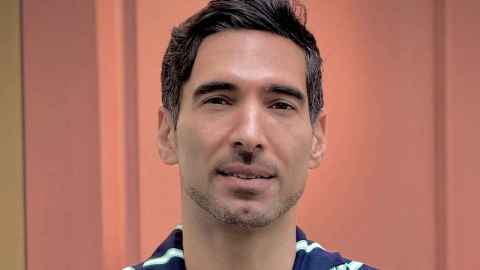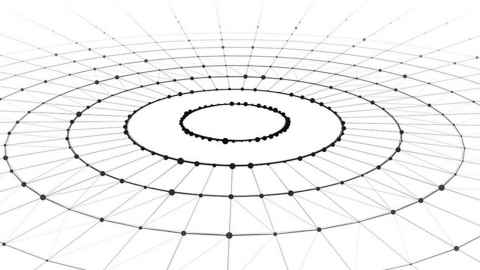Algebraic beats, geometric grooves from mathematician at Womad
15 March 2024
Dr Pedram Hekmati loves showing audiences the interlinked beauty of maths and music.

Mathematicians from the University of Auckland, Waipapa Taumata Rau are making a habit of starring at Womad, the annual festival of world music, arts, and dance in Taranaki.
This year, it’s Dr Pedram Hekmati, a senior lecturer in pure mathematics, pianist and composer.
He's made for the event – born in Iran and schooled in Sweden, Hekmati creates works that range across cultures and musical traditions, drawing on forms such as tango, waltz, and the 17th and 18th-century French music called ‘passepied’.
In ‘Geometry of Rhythms’, Hekmati will perform some of his own compositions and show how a geometric representation of a rhythm – points on a circle – can be converted into a mathematical equation.
Using algebra to manipulate the equation, he then comes up with variations such as a tango beat that's a long way from typical.
Born in Iran and schooled in Sweden, Hekmati draws on musical traditions such as tango, waltz, and the 17th and 18th-century French music passepied to create rhythms for his compositions.
The point of the exercise? To revel in the interlinked beauty of mathematics and music.
“I’m hoping the audience gains an appreciation for how music and mathematics can interact, maybe relearns some basic mathematical concepts, and just enjoys the music,” said Hekmati. “I’m excited to be performing.”
Polynomials, mathematical expressions used in algebra and geometry, provide the basis for the rhythms in Hekmati’s works. For example, in a creation called ‘“Russian Fantasy’,” the simple and regular rhythm corresponds to the roots of the polynomial x8 – 1.
For more complicated polyrhythmic music, multiple circles and polynomials are required, as in this illustration:

Womad runs from 15-17 March at New Plymouth’s Bowl of Brooklands and Brooklands Park.
Hekmati will speak and play in the OMV STEAM Lab, the science part of the festival.
The University of Auckland’s Professor Hinke Osinga starred at the festival last year, showing how the famous (to mathematicians) Lorenz equations that describe chaotic systems could be turned into a swirling piece of crochet.
Media contact
Paul Panckhurst | media adviser
M: 022 032 8475
E: paul.panckhurst@auckland.ac.nz